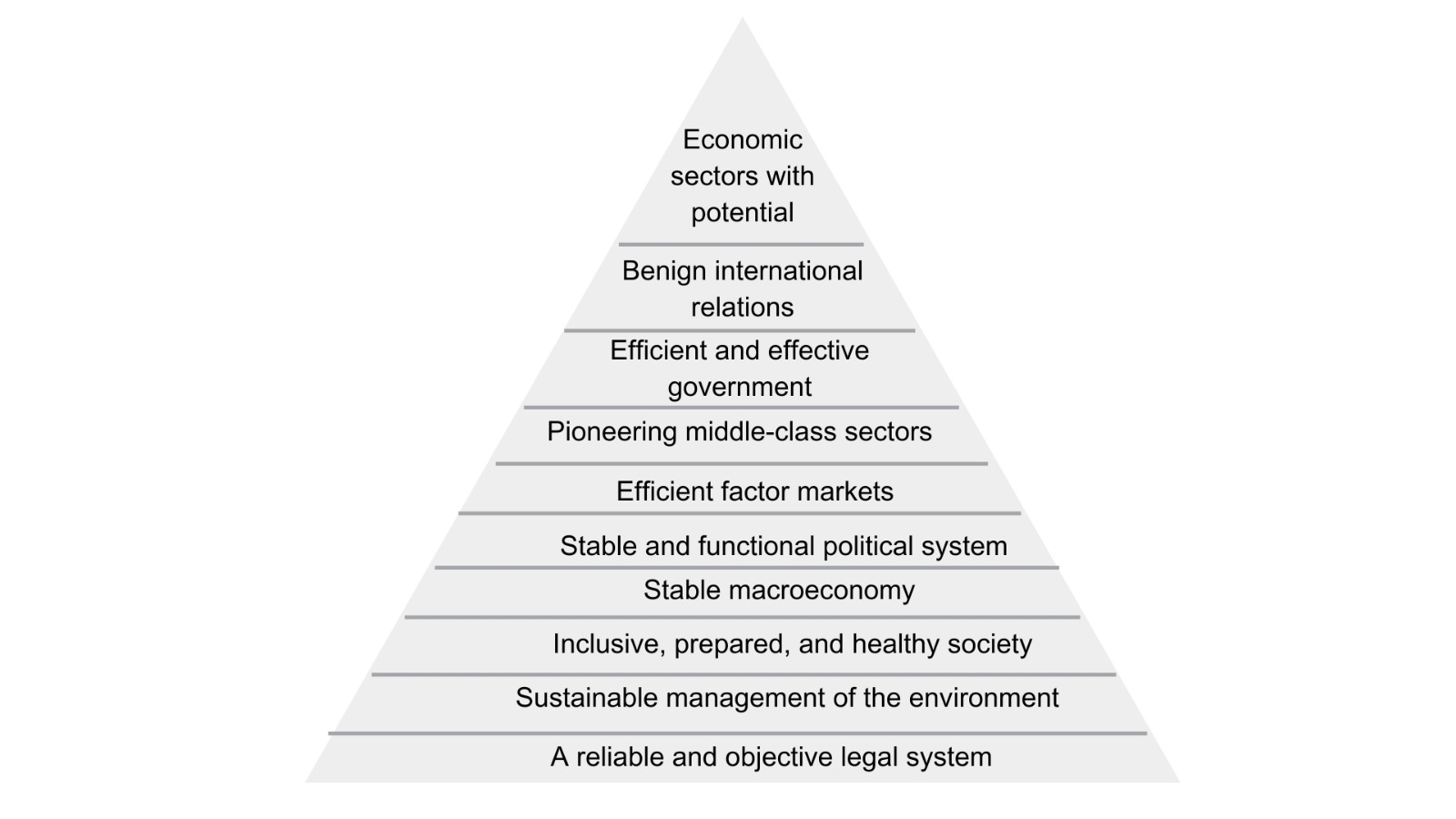Our work
More than 20 years ago, IMCO disrupted Mexico's approach to public policy by establishing itself as an unbiased think tank based on rigorous analysis and hard facts, all the while promoting open discussions through its clear and comprehensible communication style.
Our policy proposals are the product of an interdisciplinary team consisting of researchers and experts in various subjects of public interest.
At IMCO we promote a work culture of respect for diversity, labor equality, and an anti-discrimination and gender equity policy. In the institution we strive for impartiality in the treatment of men and women, keeping in mind gender equity, benefits, obligations, and opportunities. Therefore, we give priority to work based on results and not on hours, which has allowed the Institute to retain its talent, especially of women.
Why do we measure competitiveness?
IMCO defines competitiveness as the ability to generate, attract, and retain talent and investment that boosts the productivity and well being of its inhabitants. It is based on 10 factors that determine the performance of a country in the short and long term.
Competitiveness is the lens through which we view policies and decision-changes at the governmental, businesses, and individual level, both in Mexico and around the world, with the goal of making Mexico a more prosperous and inclusive country.
10 Factores

IMCO organizes these factors in the shape of a pyramid, recognizing that all are crucial, yet those at the foundation are prerequisites for the existence of the others.
In addition, IMCO takes into account the minimum acceptable level that these factors can have, which is based on the international average. This is because, in a globalized economic environment, a country is an investment alternative for an investor. In other words, the significance of a factor lies in how high or low it is compared to other countries.


